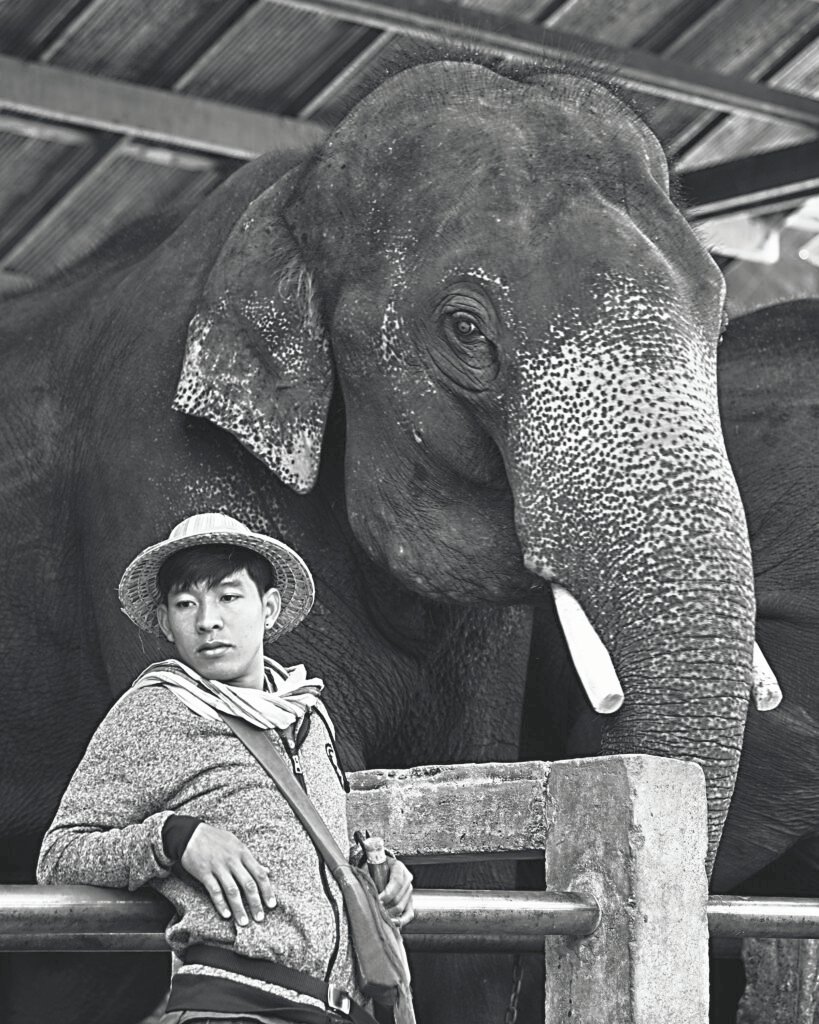
In the golden haze of late afternoon, where the jungle meets the edge of a dusty trail in Chiang Mai,
a young mahout gathers his thoughts, testing on a metal rail that separates him from his ward, Mae Dok, a female, old but gentle—moves with the rhythm of mountains, her massive feet making no more sound than fallen leaves.
They do not speak, not with words. They never needed to.
When Lek whistles low, Mae Dok stops. When he clicks his tongue, she turns. When he hums—an old lullaby his grandfather sang—she sways gently, eyes half-closed, trusting.
They grew up together. She was rescued when she was young and wounded. He was raised in a village where the old men still remember how to whisper to elephants with bundles of sugarcane and patience.
He knows her moods. She knows his fears.
Some mornings, they bathe together in the river. Lek scrubs behind her ears. Mae Dok sprays him in the face when he lingers too long.
In the afternoons, they give rides to tourists—not the heavy, cruel kind on metal seats—but slow, careful walks through the sanctuary trails, where visitors learn to feed and follow, not dominate.
Sometimes, they rest together under the tamarind tree, Lek with his arms behind his head, Mae Dok tossing dust onto her back with her trunk, both of them blinking slowly into the sun. When the wind stirs the grasses, the elephant leans her great head gently against him, and the boy leans back, like it’s the most natural thing in the world to be tethered to something so large, so ancient, so tender.